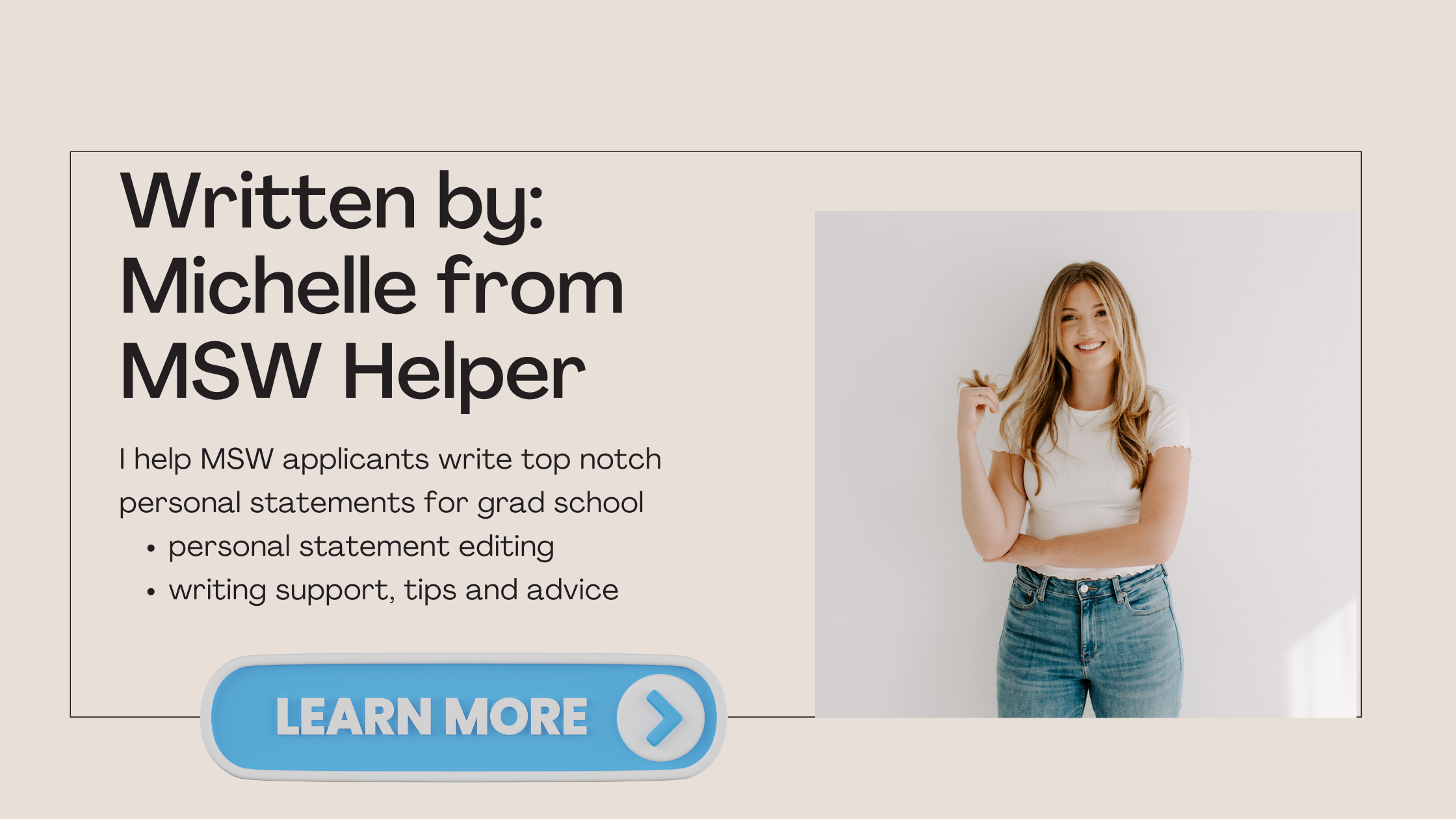Using Social Work Theories In Your MSW Personal Statement
I’m a big fan of using social work theories in the Master of Social Work personal statement. I feel like this is an area many applicants overlook, but it’s something that can help you stand out.
This post is associated with our MSW Personal Statement Guide!
Different Expectations Between Advanced Standing and Regular Track Applicants
If you’re applying to advanced standing MSW (meaning you have a BSW), this is an opportunity to show the reader what you learned in school.
If you are applying to a 2-year MSW (so you don’t already have a background in social work), discussing social work theories won’t be expected, but BOY will it impress admissions committees if you can integrate some social work theory into your personal statement.
Below are the most prevalent social work theories. I can’t teach you everything you need to know in this blog post, and this isn’t an exhaustive list, but this should help give you a jumping-off point so you can do your own research and apply it to your personal statement.
Related: Advanced Standing Vs. Regular Track MSW Programs
Popular Social Work Theories:
Ecological systems theory
Anti-oppressive practice
Strengths-based approaches
Maslow’s hierarchy
Psychodynamic theory
Family Systems theory
Feminist theory
Critical race theory
Empowerment theory
Conflict theory
Social constructionist theory
This is not an exhaustive list, but it should get you started! To learn more about each theory, check out the following resources:
Foundational theories: (Systems theory, strengths based perspective, client centred perspective)
Micro level theories (CBT, Narrative, and Task-Centred Model)
Macro level theories (Empowerment, Feminist, and Conflict Theory)
Show, Don’t Tell
When writing your personal statement, it can be helpful to think about which theories align with what you’re saying. You don’t need to explicitly talk about social work theories, but it makes for a strong statement when you can demonstrate an understanding of the common theories and approaches to social work when discussing your social problem, as well as your goals as a social worker.
For example, maybe you want to make changes at the macro level, or you noticed the impacts of privilege and oppression during a work experience. (conflict theory).
Or, maybe you noticed barriers at the macro level that impacted your client in a tangible way (systems theory).
Maybe you provided services to a client rooted in their strengths. (strengths based approach).
Ready for the next step?
Our team of Application Advisors at MSW Helper specialize in helping Master of Social Work applicants write strong personal statements for their MSW application. Learn more about personal statement editing or attend a free webinar for MSW applicants.
Happy writing!
Michelle




